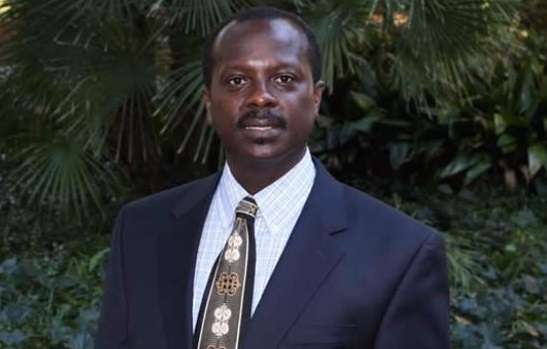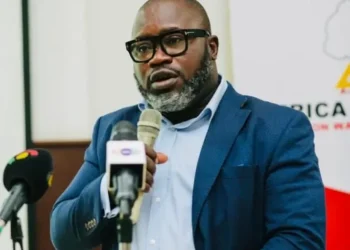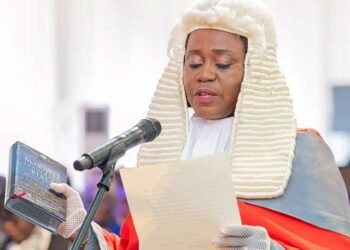Professor Stephen Kweku Asare, a Democracy and Development Fellow at the Ghana Centre for Democratic Development (CDD-Ghana), has raised significant concerns regarding the recent reshuffling of justices at the Supreme Court of Ghana.
The renowned legal activist, in a statement, expressed deep concerns over the decision by the Chief Justice to remove three out of five justices from a case they had been assigned to without any provided cause.
Professor Asare, in commenting on the controversial matter strongly asserted that such an action contradicts the democratic aspirations of the Ghanaian people and further undermines established norms of justice.
He further explained that the absence of an explanation for the removal of the three justices by the Chief Justice could fuel widespread speculation about the motives of the Chief Justice.
Furthermore, Professor Asare highlighted the detrimental effects of the move on the public’s trust in the judiciary, questioning whether the original panel might have reached a different decision.
“The absence of an explanation also fuels unhealthy speculations. Why were those 3 Justices removed? Was Kulendi removed for his scathing dissent in the Anas case, etc? None of these is healthy for our democracy. Nor is it good for public trust and confidence in the justice system”.
Professor Stephen Kweku Asare, Democracy and Development Fellow at the Ghana Centre for Democratic Development (CDD-Ghana)
Professor Asare further added that the issue of reshuffling of judges sitting on cases is not new in the country, recounting that past criticisms led to various practice directives aimed at ensuring transparency in the empanelment process.
He referenced a directive issued by Chief Justice Wiredu in 2000, which advocated for the inclusion of all available Supreme Court justices, or at least seven, in constitutional matters to restore public confidence.
The directive according to Professor Asare was widely praised for enhancing transparency and reducing allegations of political bias.
Professor Asare quoted Mr Bimpong Buta, the then editor of the Supreme Court of Ghana Law Report, who indicated that the direction made the empanelling of the Supreme Court for the determination of constitutional cases more transparent; and more importantly, stressing that the direction was in line with the democratic aspirations of all Ghanaians and the sustenance of the rule of law in the country.

Current Chief Justice’s Position and Public Demand for Transparency
Touching on the danger of the recent reshuffling of Supreme Court judges in the Dr Stephen Opuni, the former Chief Executive Officer of Ghana Cocobod’s trial, Professor Asare indicated that the recent reshuffle seems to be reversing the progress made in the past and plunging the country into a new era of “opaque empanelment”.
In light of his concerns, Professor Asare directed several pressing questions to the current Chief Justice, demanding immediate answers.
He began by asking the Chief Justice to provide clarification on whether all Supreme Court Justices still have a constitutional right to sit on all constitutional matters as enunciated in the former Chief Justice, Wiredu’s practice directive.
Professor Asare also demanded the Chief Justice provide the criteria used for assigning justices to both constitutional and non-constitutional cases, the constitutional rights of Supreme Court justices to sit on such cases, and the reasoning behind the recent reshuffling of the judges sitting on Mr Opuni’s trial.
In addition, Professor Asare asked the Chief Justice to declare her position on the calls for the implementation of software systems that randomly assign panels, considering factors such as expertise and workload.
He cautioned the Chief Justice to refrain from panel manipulation, adding that such conduct is considered as misbehaviour that can trigger Article 146 removal proceedings.
Professor Stephen Kweku Asare concluded his remarks by decrying the declining criticisms and public outcry against the judiciary in the conduct of its duty.
He attributed the situation to the failure of the Ghana Bar Association to demand accountability from the judiciary in addition to what he describes as the culture of silence that is enforced by needless attacks on those who dare criticize or raise questions against the judiciary’s actions.
Professor Asare pointed to the case of the Special Prosecutor’s removal as an example of this troubling trend.
He emphasized that silence in the face of such actions is not an option, especially given the historical context of public outcry and judicial responses that have previously led to a more robust justice system.
READ ALSO: Congo Foils Coup Attempt, Arrests Perpetrators After Attacks in Kinshasa























